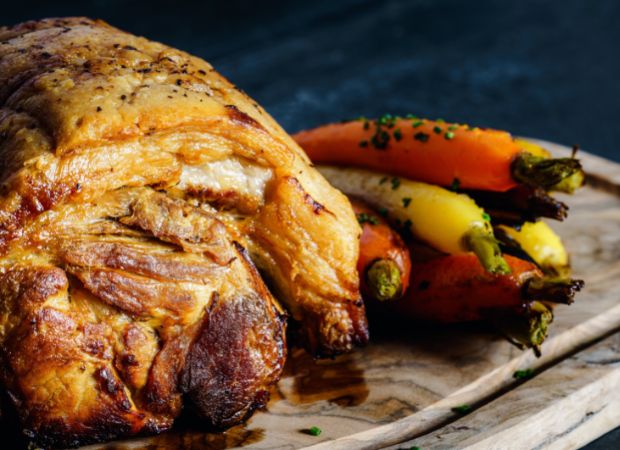Brought to you by Lamb & Mutton SA
For people across the world, lamb is a popular choice of meat. Not only for its various versatile cuts that yield different (and delicious) results, but also because lamb often holds cultural significance for a number of religions, therefore featuring on many holiday tables. Here’s a look at lamb’s worldwide appeal and the reasons why so many cultures include it in celebratory meals.
Christianity
Easter and Christmas
Roast lamb on Easter is a classic that traces back to the bible. Easter commemorates Jesus – also known as the lamb of God – sacrificing himself on the cross, so it’s likely Christians serve roast lamb on the holiday to remember this. Additionally, lamb is considered to be a sacrificial animal in the bible, which also explains the tradition of eating it during celebrations.
Recipe to try: Slow roasted lamb shoulder with spiced pumpkin
Islam
Eid al-Adha, Ramadan and Eid al-Fitr
Eid al-Adha is the second Eid celebrated in the Islamic calendar (the first being Eid al-Fitr that follows Ramadan) and is referred to as the “Festival of Sacrifice”. It is celebrated in honour of Prophet Ibrahim’s loyalty, who dreamt he was ordered by Allah to sacrifice his son, Ismail Eid-al-Adha. To symbolise this sacrifice, lamb is commonly eaten at Eid al-Adha. Lamb curry or Rogan Josh is a popular dish, as is roast leg of lamb and shanks.
Ramadan takes place for a month, with Muslims fasting from before sunrise to sundown to honour Allah giving Muhammad the Qur’an and revealing that he was a prophet. Traditionally the fast is broken either with a date or a ‘savoury’ such as a samoosa or chilli bite, before everyone sits down to enjoy a meal that often Softly spiced lamb stews are popular and nourishing after a day of fasting.
Eid al-Fitr marks the end of the fast observed over Ramadan and takes place over three days. While there are no rules governing exactly what should be prepared, lamb is often served in the form of spiced stews or curries and celebratory roasts, again symbolising Ibrahim’s sacrifices.
Judaism
Passover
Passover celebrates the Jewish people escaping slavery in Egypt. This is done through the retelling of the story and eating symbolic foods on a Seder plate. One of these is a roasted lamb bone, called a zeroah, which symbolises the sacrifice of a lamb whose blood was painted on the doorway of enslaved Israelites’ houses to ensure the safety of their first-born children. Some families will serve roasted lamb or stew for the meal following the Seder.
Recipe to try: Grilled butterflied leg of lamb with hummus and red pepper pesto
Rosh Hashanah
Rosh Hashanah is the Jewish New Year. Many of the dishes prepared for the meal centre around ushering in good fortune for the year ahead, so it’s not uncommon for lamb to appear here. Often it will be served with another symbolic ingredient, such as pomegranates or carrots, to signify a sweet new year.
For more recipes, facts and tips for cooking with lamb, visit www.cookingwithlamb.co or @cooking_with_lamb on Instagram.

